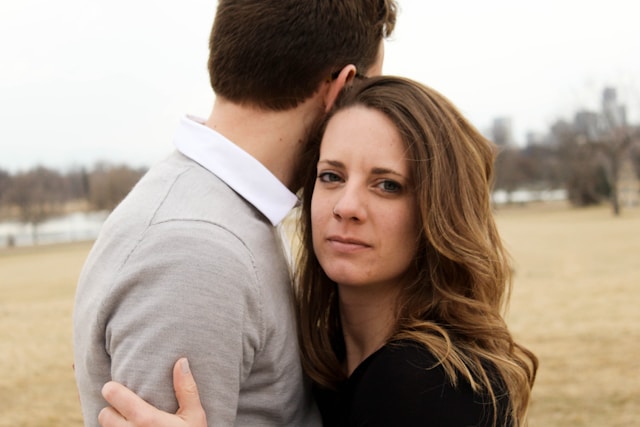Not long ago, having kids was seen as just the next step, almost like it was baked into adulthood with no questions asked.

These days, however, a lot of people are stepping back and asking themselves if parenthood is truly right for them—and more often than not, the answer is no. Sure, financial pressures are part of it, but there’s a much deeper change happening too. More people are thinking about what they actually want from life, and they’re making choices that reflect those priorities. Here are some real reasons why more people are choosing not to have kids, and it’s not just about saving money.
1. They want to prioritise their mental health.

Raising children can be rewarding, but it also demands an incredible amount of emotional resilience. For people who are already navigating anxiety, depression, or healing from trauma, the idea of adding the relentless demands of parenting can feel overwhelming rather than inspiring.
Rather than risking their well-being or passing unresolved struggles onto another generation, many are choosing to focus on building a stable, peaceful life for themselves first and foremost. They’re honouring their own healing journeys without feeling obligated to add more weight to their emotional plate.
2. They value freedom and flexibility.

Life without kids often means having the freedom to chase spontaneous adventures, explore different career paths, and make choices without having to think five steps ahead for someone else. That flexibility feels too good to give up for some people.
They’re not rejecting responsibility outright. Instead, it’s about embracing the ability to move through life without being tied to rigid routines. Having that kind of autonomy is something many people are protecting fiercely because they know how rare it can be once it’s gone.
3. They don’t want to bring kids into such a chaotic world.

It’s hard to ignore how uncertain things feel right now—climate crises, political upheaval, rising inequality. For some, the idea of bringing a child into this kind of world feels less like hope and more like unnecessary risk.
They’re not being negative or fearmongering, they’re being honest. Choosing not to have kids can be a deeply loving decision, a way of acknowledging that they don’t want to place another person into a future they feel unsure about.
4. They’ve redefined what legacy means.

For previous generations, legacy often meant raising children who would carry on the family name or traditions. However, today, many people are redefining legacy on their own terms—through art, activism, mentorship, and community building. They’re leaving their mark through the work they do, the kindness they spread, and the lives they touch. Legacy has become less about biology and more about impact, and they’re perfectly happy with that change.
5. They don’t feel pressured to follow the “default path” anymore.

Society used to paint a pretty rigid picture of success: get married, buy a house, have kids, retire. Now, more people realise they don’t have to check off those boxes to build a meaningful, joyful life. They’re crafting lives that actually fit who they are, not just lives that look good from the outside. Without the old social pressure to conform, there’s so much more space to decide what truly feels right on a personal level.
6. They’re being honest about what parenting really demands.

Parenthood is often sold with images of smiling babies and cosy family dinners, but the reality includes sleepless nights, financial stress, and years of emotional labour. More people are recognising that, and they’re being honest about whether they’re up for it.
Choosing not to become a parent isn’t a failure or a lack of maturity, it’s clarity. It’s understanding that love for children doesn’t automatically mean you’re meant to raise one yourself, and being wise enough to respect that boundary.
7. They don’t believe having kids will “fix” anything.

There used to be a quiet belief that having children could solve relationship problems, cure loneliness, or give life instant meaning. Of course, more people today know that parenting magnifies whatever issues you already have. They’re not looking for kids to fill emotional voids or rescue them from uncertainty. They’re doing the harder work of building happiness and stability within themselves, not outsourcing it to future generations.
8. They see value in deep friendships and chosen family.

Many people are building rich, meaningful lives rooted in deep friendships, creative communities, and chosen families that offer real love and support, without the need for biological ties. They realise that fulfilment and connection don’t have to come from raising children. Sometimes, having a strong circle of chosen family can offer more joy and resilience than traditional setups ever could.
9. They want financial freedom for reasons beyond survival.

It’s true that raising children is expensive, but for many people, the choice to remain child-free isn’t just about avoiding bills. It’s about having the ability to invest in travel, personal passions, education, or even early retirement. They’re not hoarding wealth; they’re creating a life where they have choices, security, and breathing room. It’s about building richness in experience, not just padding a bank account.
10. They’re focusing on personal growth.

Many people feel they have personal journeys they’re still working through, whether it’s healing from past trauma, mastering a craft, or exploring parts of themselves they never had the chance to before. Choosing not to have kids allows them to continue growing without splitting their energy. They’re not stuck in a holding pattern, waiting for parenthood to define them; they’re building full, layered lives all on their own terms.
11. They recognise the world needs caretakers in different forms.

Not everyone who wants to nurture and give back needs to do it through parenting. People are putting their energy into animal rescue, environmental activism, mental health advocacy, and community building in ways that feel just as meaningful. They’re proving that being a caretaker doesn’t have to involve having children. It can be about healing the planet, lifting other people up, and leaving the world better than they found it in whatever way fits their heart.
12. They simply don’t feel the calling, and that’s enough.

One of the most important reasons, and one that still gets overlooked, is simply this: they don’t feel called to parenthood. And for them, that’s a good enough reason not to do it. Parenting is too big, too sacred, to do half-heartedly. By choosing honesty over obligation, they’re respecting not only themselves but also the lives they would have brought into the world — and that choice deserves nothing but respect.




